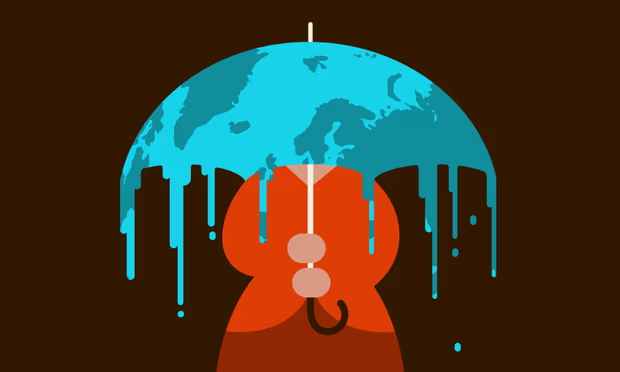Let’s take a closer look at you. You say you don’t think you’re depressed, despite feeling depressed. How you feel is important: don’t belittle it

I’m in my early 70s and have four beautiful grandchildren in their teens. I am so depressed about the world they are growing up in. I know life has to go in cycles and being despondent never helps, but when I try to look on the bright side I feel I’m pretending. I don’t think I’m depressed – my life is good, enough money, good health, loving husband, friends and plenty to keep me busy. How can I make the pretence feel real?
It’s great you care about what’s going on around you, and I don’t think you should pretend otherwise. We all need to care a hell of a lot. But I understand that’s not what you’re asking. It’s about how to really feel everything is going to be OK. Some days, that’s a tall order, isn’t it? But perhaps the more realistic quest is to find a way to care, stay engaged and not tip over into a feeling of inevitability and inertia.
Let’s take a closer look at you. You say you don’t think you’re depressed, despite feeling depressed. How you feel is important: don’t belittle it. I want to make sure you’re not projecting your feelings on to a bigger canvas (the state of the world your grandchildren will inherit) because you don’t think your feelings on their own are worth bothering about. You emailed me a second time and hinted at that. Depression can affect anyone and we can all feel depressed at times. What’s important is not to start to spiral. Negative emotions are valid and important but problems can start if we become stuck with them.
I also wonder if you think depression is something other people get: this is quite common, especially in people of your generation. You can have a good life, money, be healthy and still feel depressed – and that’s allowed. In fact, sometimes these things can make it harder to recognise depression because it’s easy to think, “What do I have to be depressed about?”
Have you told anyone else how you feel? A friend? Your husband? It would also be a good idea to visit your GP, because chatting about this and acknowledging it may help – there may be a counsellor attached to the surgery.
How long have you felt like this? Is it a new thing? Did something trigger it? How did you deal with negative emotions when you were a child (this is important: if you were never taught how to process certain feelings you may still not know what to do with them)?
Sometimes outside events can impact on how we feel; other times they don’t affect us as much. The difference lies in what else we have going on, how much perspective we can get on a situation and how in control we feel. And they all work synergistically. Were you once a busier person than you are now? Anxiety loves a void.
As far as the world goes, think about the things you care most about and what you can do. Is it the environment? Poverty? The B-word? Get involved in what you can: from local groups to global ones. I’ve included some suggestions below.
How much contact do you have with your children and grandchildren? Teenagers are rather wonderful and can give you hope in a bleak landscape: they often have a lot to say. I bet you make their world a better place already. You may want to get involved in something together. They are lucky to have such a (potentially) activist grandmother. But teens worry a lot, too – so be factual with them but try not to be too negative, as young people need older relatives to not be all doom and gloom.
I long to be a hands-on grandmother
Engaging in things will make you feel more involved and more in control. Feeling you are doing something will also allow you to switch off at times and find pleasure in small, everyday things. Be discerning about who you talk to and what you read. It’s one thing to stay informed but don’t wallpaper your life with news, especially alarmist headlines that fill you with fear: they can be paralysing instead of propelling.
Some days you will still feel as if you’re pretending, and that’s OK. But hopefully you will start to bridge the gap between what you project and how you really feel.